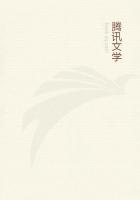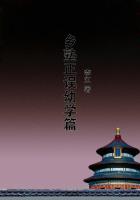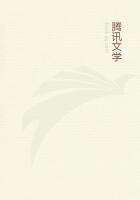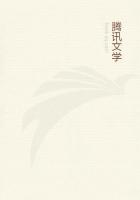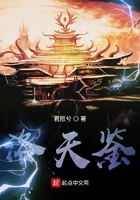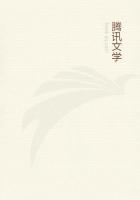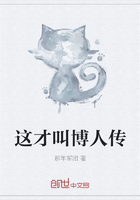About four in the afternoon I went across the terrace to Madame Victoire's apartments; three men had stopped under the windows of the throne-chamber. "Here is that throne," said one of them aloud, "the vestiges of which will soon be sought for." He added a thousand invectives against their Majesties. I went in to the Princess, who was at work alone in her closet, behind a canvass blind, which prevented her from being seen by those without. The three men were still walking upon the terrace; I showed them to her, and told her what they had said. She rose to take a nearer view of them, and informed me that one of them was named Saint-Huruge; that he was sold to the Duc d'Orleans, and was furious against the Government, because he had been confined once under a 'lettre de cachet' as a bad character.
The King was not ignorant of these popular threats; he also knew the days on which money was scattered about Paris, and once or twice the Queen prevented my going there, saying there would certainly be a riot the next day, because she knew that a quantity of crown pieces had been distributed in the faubourgs.
[I have seen a six-franc crown piece, which certainly served to pay some wretch on the night of the 12th of July; the words "Midnight, 12th July, three pistols," were rather deeply engraven on it. They were, no doubt, a password for the first insurrection.
--MADAME COMPAN]
On the evening of the 14th of July the King came to the Queen's apartments, where I was with her Majesty alone; he conversed with her respecting the scandalous report disseminated by the factious, that he had had the Chamber of the National Assembly undermined, in order to blow it up; but he added that it became him to treat such absurd assertions with contempt, as usual; I ventured to tell him that I had the evening before supped with M. Begouen, one of the deputies, who said that there were very respectable persons who thought that this horrible contrivance had been proposed without the King's knowledge. "Then," said his Majesty, "as the idea of such an atrocity was not revolting to so worthy a man as M. Begouen, I will order the chamber to be examined early to- morrow morning." In fact, it will be seen by the King's, speech to the National Assembly, on the 15th of July, that the suspicions excited obtained his attention. "I know," said he in the speech in question, "that unworthy insinuations have been made; I know there are those who have dared to assert that your persons are not safe; can it be necessary to give you assurances upon the subject of reports so culpable, denied beforehand by my known character?"
The proceedings of the 15th of July produced no mitigation of the disturbances. Successive deputations of poissardes came to request the King to visit Paris, where his presence alone would put an end to the insurrection.
On the 16th a committee was held in the King's apartments, at which a most important question was discussed: whether his Majesty should quit Versailles and set off with the troops whom he had recently ordered to withdraw, or go to Paris to tranquillise the minds of the people. The Queen was for the departure. On the evening of the 16th she made me take all her jewels out of their cases, to collect them in one small box, which she might carry off in her own carriage. With my assistance she burnt a large quantity of papers; for Versailles was then threatened with an early visit of armed men from Paris.
The Queen, on the morning of the 16th, before attending another committee at the King's, having got her jewels ready, and looked over all her papers, gave me one folded up but not sealed, and desired me not to read it until she should give me an order to do so from the King's room, and that then I was to execute its contents; but she returned herself about ten in the morning; the affair was decided; the army was to go away without the King; all those who were in imminent danger were to go at the same time. "The King will go to the Hotel de Ville to-morrow," said the Queen to me; "he did not choose this course for himself; there were long debates on the question; at last the King put an end to them by rising and saying, 'Well, gentlemen, we must decide; am I to go or to stay? I am ready to do either.' The majority were for the King staying; time will show whether the right choice has been made." I returned the Queen the paper she had given me, which was now useless; she read it to me; it contained her orders for the departure; I was to go with her, as well on account of my office about her person as to serve as a teacher to Madame.
The Queen tore the paper, and said, with tears in her eyes, "When I wrote this I thought it would be useful, but fate has ordered otherwise, to the misfortune of us all, as I much fear."
After the departure of the troops the new administration received thanks;
M. Necker was recalled. The artillery soldiers were undoubtedly corrupted. "Wherefore all these guns?" exclaimed the crowds of women who filled the streets. "Will you kill your mothers, your wives, your children?"--"Don't be afraid," answered the soldiers; "these guns shall rather be levelled against the tyrant's palace than against you!"
The Comte d'Artois, the Prince de Conde, and their children set off at the same time with the troops. The Duc and Duchesse de Polignac, their daughter, the Duchesse de Guiche, the Comtesse Diane de Polignac, sister of the Duke, and the Abbe de Baliviere, also emigrated on the same night.

